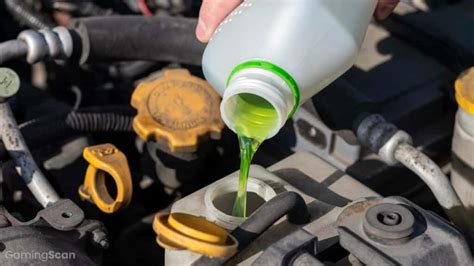Keep Your Car Cool: A Practical Antifreeze Guide
Maintaining your vehicle's cooling system is crucial for its longevity and performance. A critical component of this system is antifreeze, often called coolant. This guide will explore the essential aspects of antifreeze, helping you keep your car running smoothly, regardless of the temperature outside.
What is Antifreeze and Why Do I Need It?
Antifreeze, or coolant, is a crucial fluid that prevents your engine from overheating, especially during hot summer months. It's more than just an anti-freeze agent; modern coolants also contain corrosion inhibitors that protect the various metal components within your engine's cooling system. Without it, your engine could overheat and suffer catastrophic damage, leading to costly repairs. This is especially true in extreme temperatures, both hot and cold.
What are the Different Types of Antifreeze?
There are primarily two types of antifreeze:
-
Ethylene Glycol: This is the traditional type of antifreeze and is still widely used. It's highly effective at preventing freezing and boiling, but it is also highly toxic. Always handle ethylene glycol with extreme care and keep it away from children and pets.
-
Propylene Glycol: This is a less toxic alternative to ethylene glycol, offering similar performance in terms of freezing and boiling point protection. It's often preferred for environmental reasons and its relative safety.
How Often Should I Change My Antifreeze?
The recommended interval for antifreeze changes varies depending on the type of antifreeze (conventional or extended life) and the manufacturer's recommendations. Generally, conventional antifreeze should be changed every 2 years or 24,000 miles, whichever comes first. Extended-life antifreeze can typically last 5 years or 150,000 miles, again, depending on manufacturer guidelines. Always consult your vehicle's owner's manual for the specific recommendations for your car.
How do I know when to change my antifreeze?
Several factors indicate the need for an antifreeze change. Discoloration (becoming brown or rusty) is a strong indicator. A sweet smell (indicative of a leak) necessitates immediate attention. Regularly check your coolant level; consistently low levels could signal a leak requiring professional assessment.
What Happens if I Don't Change My Antifreeze?
Failing to change your antifreeze at the recommended intervals can lead to several problems:
- Overheating: The corrosion inhibitors in antifreeze degrade over time, leaving your engine vulnerable to overheating.
- Corrosion: Without proper protection, metal components in your cooling system can rust and corrode, leading to leaks and potentially catastrophic engine failure.
- Reduced Engine Performance: A compromised cooling system can reduce engine efficiency and power.
What is the Proper Antifreeze Mixture?
The ideal antifreeze mixture is typically a 50/50 blend of antifreeze and distilled water. Using only antifreeze or only water is not recommended. Water helps distribute the heat effectively, while the antifreeze prevents freezing and boiling, and protects against corrosion. Never use tap water; the minerals in tap water can contribute to scaling and corrosion within the cooling system.
Can I Mix Different Types of Antifreeze?
Mixing different types of antifreeze (e.g., ethylene glycol and propylene glycol) is generally not recommended. While some modern coolants are designed to be compatible, it’s best to stick with the same type to avoid potential issues. Always check your owner's manual for compatibility guidelines before mixing.
How Do I Check My Antifreeze Level?
Your vehicle's cooling system typically has an overflow reservoir, often transparent, with minimum and maximum level markers. With the engine cold, check the coolant level. If it’s low, consult your owner's manual or a mechanic to determine the cause and remedy. Never open the radiator cap while the engine is hot; this can cause severe burns from escaping hot coolant.
Conclusion: Proactive Maintenance is Key
Regular antifreeze changes are an essential part of car maintenance. By following these guidelines, you can prevent costly repairs, keep your engine running efficiently, and extend the lifespan of your vehicle. Remember to always consult your owner’s manual for specific recommendations and safety precautions. Proactive maintenance pays off in the long run by ensuring your car's cooling system operates at peak performance, keeping you cool on the road.

